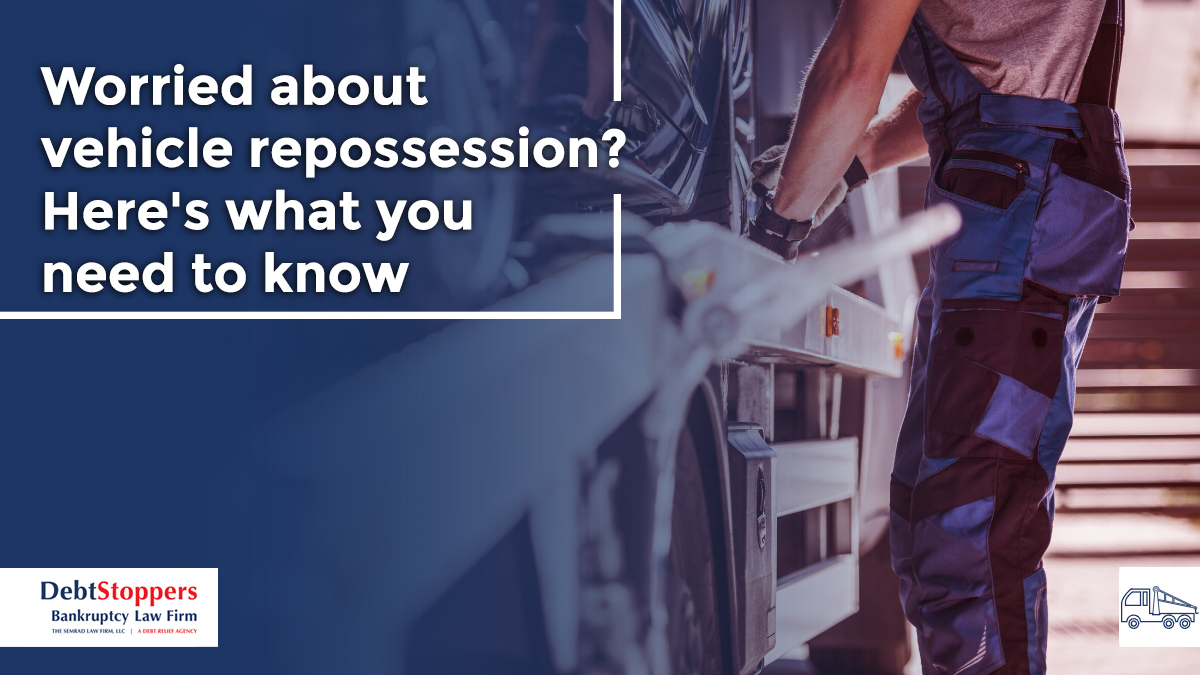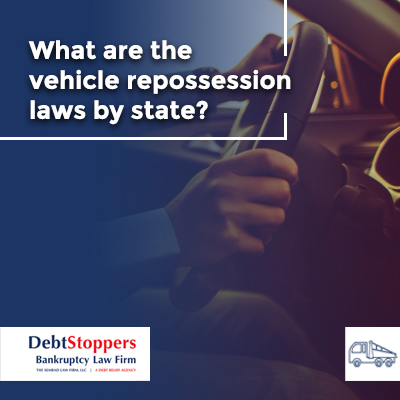Worried about vehicle repossession? Here's what you need to know

Vehicle repossession can be a stressful experience, but understanding the process and your rights can help you navigate it more effectively. Here's what you need to know about vehicle repossession.
What does repossession mean?
Repossession is the legal process a lender can use to take back property, including vehicles, from the borrower if they fail to meet the terms of the loan agreement, usually by missing payments. It’s important to know that repossession can impact the borrower's credit score and leave them paying for a car they no longer own.
How does vehicle repossession work?
First, the borrower should be notified of the repossession and informed about the next steps, which might include how to reclaim the vehicle by paying the outstanding debt, fees, and costs.
If the borrower does not reclaim the vehicle, the lender sells it, usually through an auction, to recoup the outstanding loan amount. However, if the sale proceeds do not cover the full amount owed, the borrower may still be responsible for paying the remaining balance, known as the deficiency balance.
Missed payments
If a borrower misses one or more loan payments, violating the terms of the loan agreement, the lender can send the borrower a notice warning them of the missed payments and the risk of repossession if the debt is not settled.
Lender takes and sells the vehicle
If the borrower fails to make the payments, the lender issues a repossession order to a repossession company or agent. The repossession agent locates the vehicle by tracking the borrower's address, workplace, or other locations where the vehicle might be parked.
The repossession agent then takes physical possession of the vehicle, often without prior warning to the borrower. This can be done by towing the vehicle or using a key provided by the lender.
You are responsible for any deficiencies
If the sale of the vehicle does not cover the balance owed, you are responsible for the difference. The repossession and any unpaid deficiency balance are reported to credit bureaus, negatively affecting the borrower's credit score.
How long does a vehicle repossession stay on your credit report?
A vehicle repossession typically stays on your credit report for seven years from the date of the first missed payment that led to the repossession. During this period, it can significantly impact your credit score and your ability to obtain new credit, loans, or favorable interest rates. After seven years, the repossession should be automatically removed from your credit report, although the impact on your credit score will lessen over time as the repossession ages.

What are the vehicle repossession laws by state?
Vehicle repossession laws vary by state, but some commonalities include:
-
Right to Cure - most states require lenders to give borrowers a chance to catch up on missed payments before repossessing the vehicle.
-
Notice Requirements - most states require lenders to notify borrowers before and/or after repossession.
-
Breach of Peace - repossession must be done without breaching the peace, meaning no use of force, threats, or entering locked garages without permission.
-
Redemption Period - borrowers often have a period during which they can reclaim the repossessed vehicle by paying the outstanding balance and any associated fees.
-
Personal Property - lenders must return any personal property found in the vehicle at the time of repossession.
General Advice:
-
Specific terms regarding repossession are often detailed in the loan agreement so it’s wise to understand the terms of the loan agreement.
-
Since laws vary from state to state, you should consult with a legal professional who is familiar with your state for precise guidance.
-
Act Quickly! If you are facing repossession, you need to take action. Doing nothing will not solve the problem. An experienced attorney can help you understand your options and navigate the legal system.

How to find helpful repossession lawyers?
Finding a helpful repossession lawyer involves several steps to ensure you select someone knowledgeable and experienced in consumer protection and repossession laws.
First, you can seek recommendations from friends, family, or colleagues who have faced similar issues. You can also research online using legal directories to search for lawyers specializing in repossession or consumer protection law. You can also look for law firms focusing on consumer rights, bankruptcy, and repossession issues in your area.
Next, you should check reviews and testimonials from past clients to gauge the lawyer's reputation and effectiveness. Make sure you pay attention to feedback on communication, success rates, and overall client satisfaction. Additionally, you should verify the lawyer’s credentials, including their education, bar association membership, and any certifications in consumer law.
You should always schedule consultations with a few lawyers to discuss your case. During the consultation, ask about their experience with repossession cases, their approach to handling your case, and their fee structure. Make sure to select a lawyer who communicates clearly and makes you feel comfortable.
Make sure to discuss fees upfront and understand the payment structure (hourly rate, flat fee, contingency fee, etc.) Ultimately, you want to find a repossession lawyer who is well-equipped to handle your case and protect your rights. The right attorney can make a world of difference.





